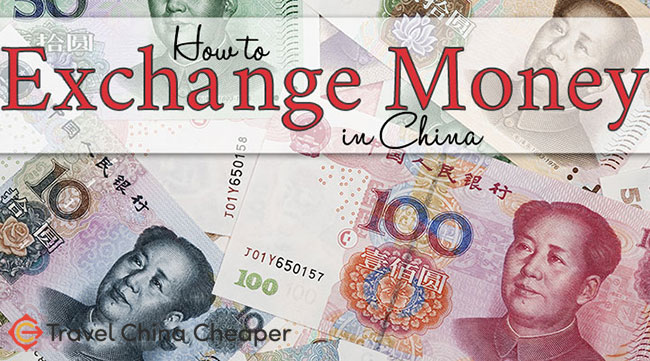Top 10 Tips For Exchange Rate Margins In Terms Of Currency Exchange
Anyone working in the realm of international finance that wants to travel, do business, manage investments or conduct international business should be knowledgeable about exchange rate margins. The difference between the selling and buying prices of currencies is what makes up the exchange rate margin. This could have an impact on the overall cost of the transaction. The margins can be very different between different providers. This can affect the cost to exchange currency or turn an investment profit. Understanding the exchange rate margins will help you make better decisions and save money. The top ten strategies for managing margins are listed below.
1. Learn What the Exchange Rate Margin is
– The spread is the gap between the asking price (the cost of a currency) and the price at which it is sold (the bid price) for that currency. This concept is important for travelers, investors and business since it influences the rate you receive when you convert currencies. A smaller range suggests an exchange rate that is favorable and more sound financial decisions.
2. Compare margins between providers
Different financial services and institutions provide different rates for exchange. Examine the margins of various providers prior to making currency exchanges. This includes banks, online platforms and kiosks for currency exchange. Websites like XE.com, OANDA and others provide real-time information on rates and margins. Then, you can choose the most appropriate option for your transaction.
3. Be aware of the influences of markets on margins.
– The margins of exchange rates could be affected by various factors, such as the market's volatility and economic indicators or geopolitical events. A sudden economic crisis, or political instability in the country could increase the margins as a result of increased risk. It is easier to make informed decisions regarding currency exchanges when you are aware of the market's dynamics.
4. Utilize online Currency Exchange Platforms
Online exchange platforms typically offer more competitive exchange rates and narrower margins than traditional banks and physical exchange services. Companies such as Wise (formerly TransferWise) and Revolut typically provide real-time rates with lower fees and better margins. These platforms will cut down your costs for converting currencies while traveling or conducting business.
5. Timing Your Currency Exchange
The timing you use to exchange currencies can affect the margins. Rates of exchange change throughout the day depending on the market demand and supply. Monitoring these fluctuations will help you determine the best time to switch currency. This could result in higher margins. These decisions are made much easier making use of tools that monitor currency trends.
6. Leveraging to hedge currency is a great way to protect it.
Hedging of currency is an effective tool for companies as well as investors to manage margins on exchange rates. Hedging refers to the use of financial instruments that lock in exchange rates to protect future trades against fluctuations in the value of currencies. This method can lessen the effects of margins that are expanding and increase the stability of profit especially for businesses involved in international commerce.
7. Keep an eye on economic Indicators
Different economic indicators such as rates of inflation, interest rate and employment figures can impact the exchange rates. A country that has a rising interest rate may attract foreign investments, increasing their currency, and reducing its margin for exchange. These indicators will help you gain an understanding of currency movements. This allows you to modify your strategy.
8. Take into consideration local currency when you travel.
Pay in local currencies when you travel and not in your home currency. This can help you avoid unfavorable exchange rate margins, which often include the dynamic currency conversion (DCC) options offered by retailers. Local currency payments provide you with a better conversion rate. It can reduce the total price of your purchases.
9. Beware of hidden charges
Beware of hidden costs. The services that provide currency exchange may charge you additional fees on top of the margins on exchange rates. The fees may include transaction, service, and commission charges that can increase the margins that you see. To avoid any unexpected charges make sure you be sure to read the fine print prior to completing a currency exchange.
10. Consult financial experts for major transactions
Get in touch with financial experts and currency specialists for valuable insights in the event that you are dealing with large sums or complex currency transactions. They can aid you to understand the margins of exchange rates as well as provide strategies to reduce your expenses. Their expertise can be particularly beneficial for businesses engaging in international transactions or investors seeking to maximize their portfolios of currencies.
The following detailed information about exchange rate margins will assist you in navigating the complexity of currency transactions, regardless if you're traveling, conducting business, managing investments or both. Knowing the difference between exchange rate margins will allow you to make financial choices that are aligned to your goals and ultimately saves you money. Have a look at the recommended on the main page for currency exchange for blog recommendations including rmb to usd, dollar to rmb, cad to usd, euro to dollar, usd to pakistani rupee, dollor to inr, eur to usd, rmb to usd, british pound to dollar, canadian dollar to usd and more.

Top 10 Tips On Currency Exchange And Rates Regulation
Understanding the importance of regulatory issues is crucial for anyone doing international business, travels, or manages investments. The regulations vary between countries and can impact everything, including the exchange of currency, customs duties as well as taxation, and even trade compliance. Knowing these regulations is crucial to ensure you're in compliance to avoid penalties and maximize financial outcomes. By familiarizing yourselves with the regulatory framework, you'll be able make informed choices that will improve your experience with travel, improve the efficiency of your company and safeguard your investments. The top ten tips are provided below for you to manage your regulatory concerns in financial business.
1. Research Visa Requirements
When you travel to a new country, research thoroughly visa requirements and entry requirements. There are different policies regarding entry permits, visas and residency requirements for each country. Make sure you have the correct documentation in order not to face any issues at the border. Also, keep an eye on recent changes in regulations that might influence the travel arrangements of your. A number of countries have altered their policies in response to global issues such as the COVID-19 pandemic.
2. Customs Regulations
– Know the restrictions and regulations that apply to importing and exchanging goods in the destination country. Every country has its own set of rules regarding what can and cannot be brought into the country without paying tax or duty. Violations of these regulations can cause fines, confiscation or legal actions. Be aware of the limitations for cash, as certain countries require travellers to declare all amounts that exceed a certain threshold.
3. Be aware of foreign Currency Regulations
Different countries have different laws regarding currency exchanges and transfers of money internationally. Research the currency regulations in the country you are visiting or doing business with, as there may be restrictions regarding the amount that you can exchange or transfer. Knowing these rules will assist you in avoiding fines and ensure that you are in that you are in compliance with local laws.
4. Find local legal experts
Talk to local experts to get more knowledge of the regulatory landscape. They can give valuable insights about local laws and compliance requirements as well as potential risks related to your company. This can assist you in navigating complex regulations to avoid costly mistakes.
5. Stay informed about tax obligations
Tax laws may differ greatly between countries that affect both businesses and individuals. You should research the taxes you will be subject to when traveling overseas or conducting business, such as income tax, VAT, and withholding taxes on payment. Be aware of tax treaties between your home country and the one you are visiting.
6. Trade Regulations
If your company involves importing or exporting goods, ensure that you comply with trade regulations such as tariffs, import quotas, and licensing requirements. If you do not adhere to these rules and regulations, you could face penalties as well as delays in the delivery. Contact a professional in compliance with trade regulations to gain information on the laws that are applicable to your business and products.
7. Monitoring changes in regulatory Environments
– Regulatory environments can be subject to rapid change due political, economic or social issues. Sign up to relevant newsletters for your particular industry, updates on regulatory issues or news sources. This proactive approach will assist you in adjusting to the new regulations and maintain compliance.
8. Learn about Investment Regulations
– For investors, understanding the regulatory landscape in the countries you are planning to invest is essential. Different jurisdictions have different rules for foreign investment. This includes restrictions on the percentage of ownership, reporting requirements and the regulation of investment vehicles. It is important to research these regulations in order to ensure that your investments are legal and avoid penalties.
9. Compliance Software and Tools
– Consider using compliance software and tools designed to help businesses and individuals navigate regulatory requirements. These tools can assist in tracking regulatory changes, manage documentation and help ensure that you are in compliance with industry standards. Making investments in tools that can assist you in complying with regulations can simplify your business and minimize the risks of not being in compliance.
10. Local Business Networks – Engage your Local Business Networks
Networking can be an excellent way to gain valuable insights on regulatory considerations. In joining local trade chambers, associations or industry groups and interacting with experts who are familiar with the regulatory landscape. These contacts could provide practical guidance on how to comply with local laws.
Following these detailed tips about regulations will help you navigate the maze of travel, doing business, as well as managing your investments. Knowing the regulatory landscape can assist you in making more informed decisions that are in line with your objectives. This will enhance your overall experience and your financial plan. Understanding the regulatory landscape will allow you to avoid any potential risks when you travel overseas to enjoy a vacation or expanding your business internationally, or making investments across borders. Follow the top a knockout post about CZK to EUR for more advice including us dollar to pkr, us dollar in indian rupees, 1 usd to inr, pound to usd, thb to usd, baht to usd, gpb to usd, convert euro to usd, baht to us dollar, usd jpy and more.
